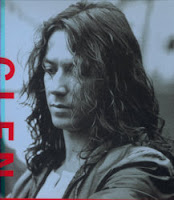 |
| Because this is what comes up when you Google image "GBRYIR" |
And as if Christmas wasn’t enough to blow your mind once a year, now it’s time for the GBRYIR!!!! (That’s "Gav’s Book Reviews Year in Review", because we continue to love acronyms). Consider it my present to you, because I'm not getting you anything else.
It’s been a big year at GBR . We’ve diversified. We’ve had cards made. We’ve doubled our readership. We’ve started talking of ourselves in the third person. All major milestones.
But no one cares about milestones. You care about awards, right? Here you go then, you impatient, loveable lot. I've even gone link-crazy with it, because I'm so web-savvy.
Best “first”: This year saw a number of firsts for GBR . First book fair covered. First mid-week show review. The first ever 0 GBR score. But by far my favourite first was the first GBR Author Interview, with non-other than my personal man-crush Glen Duncan. He left me a voicemail when we were setting the interview up, and I still listen to it every now and then, misty eyed. Which sounds creepy. And probably is.
Most read review: For some reason, City of Thieves
I’m pretty happy with that. Maybe Stewart Lee will notice and we can become best pals now. It'd save me having to stalk him so much.
Most read post: This year’s diversification meant my most (genuinely) read post wasn’t even a review. It was the write up of seeing Wilbur Smith at the Edinburgh Book Fair. You guys couldn’t get enough of that. I’m fairly certain it was because of my very cheesy photo with him. Shame I had to spoil it all by really panning his book.
 |
| Got me weak at the knees, this one |
Best book: No contest. There were three 10 GBR scores this year. One for American Gods. One for Vernon
It’s not a new book, just one I caught onto late. But I’m glad it’s in my life now. If anyone can knock Glen Duncan off top spot in my author affections, it might well be DBC Pierre. The guy can flat out write. His is the kind of writing that literally leaves your spine tingling and your heart racing. It's books like this that remind me why I read in the first place. I had to take rests to calm down. Honest to God, rests. You may have a different reaction. Because you may have bad taste in books. Which may not be your fault, but is something you should be ashamed of.
So the GBRBOTY (Gav’s Book Reviews Book of the Year) award for 2012 goes to Lights out in Wonderland by DBC Pierre. *crowd roars*
Worst book: Again, no contest. It goes to the only book I’ve felt compelled to give a 0 GBR score to. A book I found absolutely no merit in. A book I felt the need to warn you off. A book I felt guilt about panning, but thought it was the only thing I could do if I was to be entirely honest.
That book is Those in Peril. Let’s not waste any more time on it.
Best comment: GBR went comment-tastic this year, with a bunch from people I’ve never even met before. To be fair, there are an awful lot of people I've never met. The word, it seems, is spreading.
My favourite? To be serious for half a second, it was all of the ones left on this post. I was nervous writing it, but felt the need, so decided not to worry, and instead just write and see if it made me feel better. It didn’t.
Worst comment: Sorry Garth H Bairstow, but you’re a winner here. Mainly because of your apparent inability to Google a question to find the answer yourself:
Can you help. I am trying to find out in which of Wilburs books Sean Courtenay was killed by his son. Yours Faithfully Garth H. Barstow on Wilbur Smith at the Edinburgh
Remove content | Delete | Spam Garth H. Barstow on 05/10/12
So that’s that. Year two of GBR in the history books. We’ve come a long way since the first tentative post. (Yeah, I even linked to that one. POW!) Here’s to bigger and better things in 2013. And if not bigger and better, then at least more of the same.
HAPPY NEW YEAR CHRISTMAS HOLIDAY TIME EVERYBODY!!!





